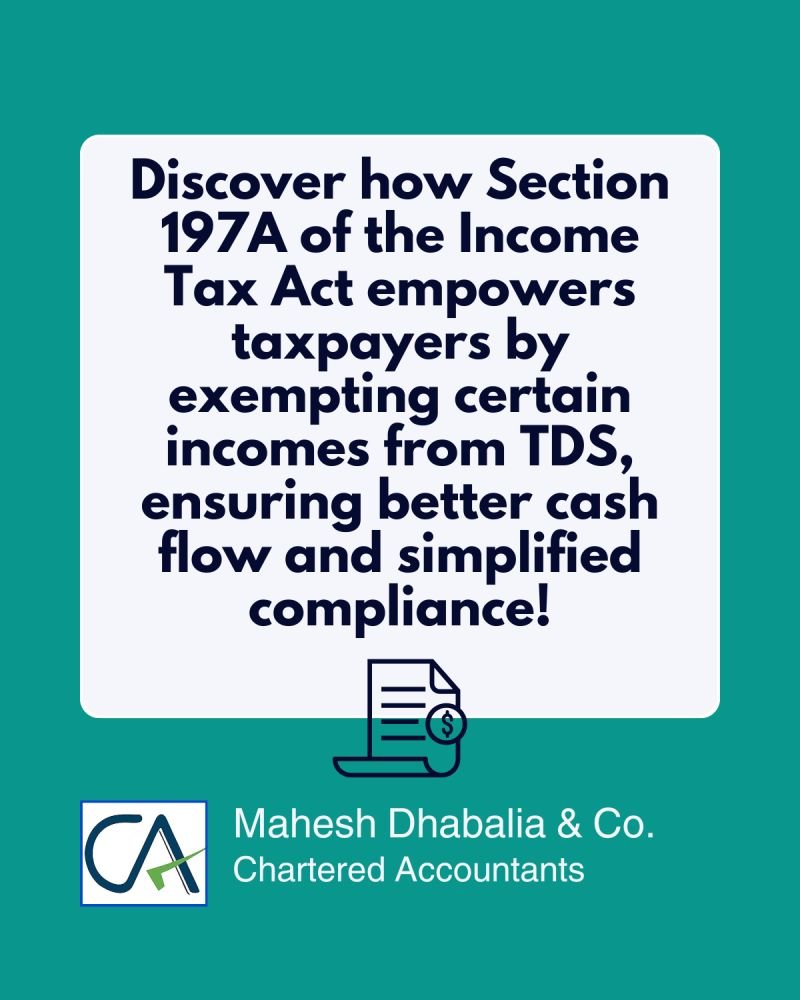Section 197A of the Income Tax Act offers significant advantages by exempting certain incomes from Tax Deducted at Source (TDS), benefiting taxpayers in several ways:
📍 Overview of Section 197A
➡️ Purpose: Allows specified incomes (like interest on securities and dividends) to be received without TDS if total income is below taxable limits.
➡️ Forms: Requires submission of Form 15G (below 60 years) or Form 15H (senior citizens) to claim exemption.
📍 Benefits
➡️ Enhanced Cash Flow: Receivers get full income without upfront deduction, crucial for retirees and fixed-income individuals.
➡️ Reduced Administrative Burden: Eliminates the need to claim refunds, simplifying financial transactions.
➡️ Improved Financial Planning: Enables better budgeting and investment decisions with predictable income.
➡️ Simplified Compliance: Promotes adherence to tax laws by avoiding unnecessary deductions.
📍 Eligibility Criteria
➡️ Individuals and HUFs: Must declare income below taxable limits using Form 15G or Form 15H.
➡️ Senior Citizens: Different thresholds apply, allowing exemption if tax liability is nil.
📍 Types of Incomes Covered
➡️ Interest from Banks and Post Offices: Includes savings, fixed deposits, recurring deposits.
➡️ Corporate Bonds and Government Securities: Exemptions based on specific conditions and declarations.
➡️ Dividends, Insurance Commission, Rent, Annuities: Each covered under specific circumstances.
📍 Procedure to Claim Exemption
➡️ Steps: Check eligibility, complete relevant form, and submit it to the deductor before income accrual to prevent TDS deduction.
📍 Legal Implications
➡️ Accuracy: Correct declaration of income status is crucial to avoid penalties under Section 277 of Income Tax Act.
➡️ Compliance: Timely submission of forms ensures eligibility and prevents legal consequences.
By leveraging Section 197A, taxpayers can optimize financial management, ensure compliance, and retain maximum income.
Explore how this provision can benefit you or your business today!



